
Hard bop is a subgenre of jazz that is an extension of bebop music. Journalists and record companies began using the term in the mid-1950s to describe a new current within jazz that incorporated influences from rhythm and blues, gospel music, and blues, especially in saxophone and piano playing.

Saxophone Colossus is the sixth studio album by American jazz saxophonist Sonny Rollins. Perhaps Rollins's best-known album, it is often considered his breakthrough record. It was recorded monophonically on June 22, 1956, with producer Bob Weinstock and engineer Rudy Van Gelder at the latter's studio in Hackensack, New Jersey. Rollins led a quartet on the album that included pianist Tommy Flanagan, bassist Doug Watkins, and drummer Max Roach. Rollins was a member of the Clifford Brown/Max Roach Quintet at the time of the recording, and the recording took place four days before his bandmates Brown and Richie Powell died in a car accident on the way to a band engagement in Chicago. Roach appeared on several more of Rollins' solo albums, up to the 1958 Freedom Suite album.
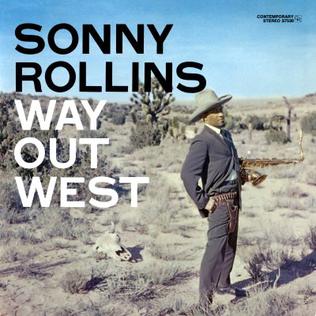
Way Out West is a 1957 album by Sonny Rollins with bassist Ray Brown and drummer Shelly Manne, neither of whom had previously played or recorded with Rollins. The music employs a technique called "strolling", used here by Rollins for the first time, in which he would solo over only bass and drums with no pianist or guitarist playing chords. The reissue of the CD has additional takes of three of the songs, including the title track. These additional takes are all about twice as long, containing much longer solos from all three members of the band.

A Night at the "Village Vanguard" is a live album by American jazz saxophonist Sonny Rollins recorded at the Village Vanguard in New York City on November 3, 1957 and released on Blue Note the following year.

Soul Station is an album by American jazz saxophonist Hank Mobley recorded on February 7, 1960 and released on Blue Note later that year. Mobley's quartet features rhythm section Wynton Kelly, Paul Chambers and Art Blakey.

Work Time is an album by jazz saxophonist Sonny Rollins, recorded for the Prestige label, featuring performances by Rollins with Ray Bryant, George Morrow, and Max Roach.

The Bridge is a studio album by jazz saxophonist Sonny Rollins, recorded in 1962. It was Rollins' first release following a three-year sabbatical and was his first album for RCA Victor. The saxophonist was joined by the musicians with whom he recorded for the next segment of his career: Jim Hall on guitar, Bob Cranshaw on double bass and Ben Riley on drums.
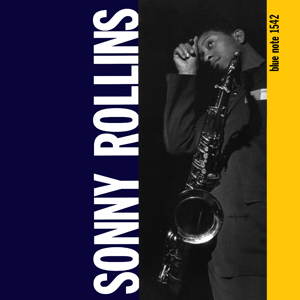
Sonny Rollins, also known as Sonny Rollins, Volume 1, is an album by American jazz saxophonist Sonny Rollins recorded on December 16, 1956 and released on Blue Note the following year.

Sunny Days, Starry Nights is an album by jazz saxophonist Sonny Rollins, released on the Milestone label in 1984, featuring performances by Rollins with Clifton Anderson, Mark Soskin, Russell Blake and Tommy Campbell.

No Problem is an album by jazz saxophonist Sonny Rollins, recorded for the Milestone label in 1981, featuring performances by Rollins with Bobby Broom, Bobby Hutcherson, Bob Cranshaw and Tony Williams.
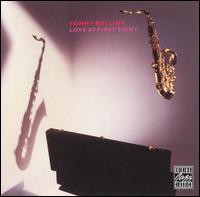
Love at First Sight is an album by jazz saxophonist Sonny Rollins, released on the Milestone label in 1980, featuring performances by Rollins with George Duke, Stanley Clarke, Al Foster and Bill Summers.

Don't Stop the Carnival is a live album by jazz saxophonist Sonny Rollins, recorded at the Great American Music Hall and released on the Milestone label in 1978, featuring performances by Rollins with Mark Soskin, Aurell Ray, Jerome Harris and Tony Williams with Donald Byrd joining on five tracks.
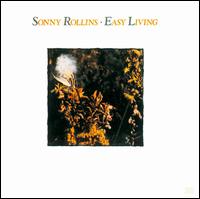
Easy Living is an album by jazz saxophonist Sonny Rollins, released on the Milestone label in 1977, featuring performances by Rollins with George Duke, Paul Jackson and Tony Williams with Byron Miller and Bill Summers added on one track and Charles Icarus Johnson on two.

Horn Culture is an album by jazz saxophonist Sonny Rollins, his second to be released on the Milestone label, featuring performances by Rollins with Walter Davis Jr., Yoshiaki Masuo, Bob Cranshaw, David Lee and Mtume.
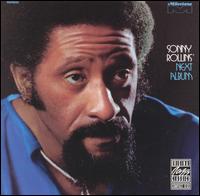
Next Album is an album by jazz saxophonist Sonny Rollins, his first to be released on the Milestone label, featuring performances by Rollins with George Cables, Jack DeJohnette, Bob Cranshaw and Arthur Jenkins. The cover photography was credited to Chuck Stewart.

Sonny Rollins and the Big Brass is an album by jazz saxophonist Sonny Rollins, recorded for the MetroJazz label, later reissued on Verve Records as Sonny Rollins/Brass - Sonny Rollins/Trio.
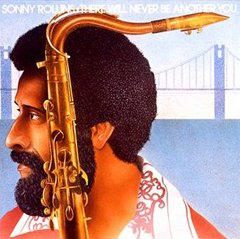
There Will Never Be Another You is a live album by jazz saxophonist Sonny Rollins, recorded at the Museum of Modern Art in New York City on June 17, 1965, and released on the Impulse! label in 1978, featuring a performance by Rollins with Tommy Flanagan, Bob Cranshaw, Billy Higgins and Mickey Roker.

Freedom Suite is an album by jazz saxophonist Sonny Rollins, his last recorded for the Riverside label, featuring performances by Rollins with Oscar Pettiford and Max Roach.

Tour de Force is an album by jazz saxophonist Sonny Rollins containing his final recordings for the Prestige label. Rollins performed with Kenny Drew, George Morrow, and Max Roach, with vocals by Earl Coleman on two tracks.

Urban Dreams, is an album by jazz baritone saxophonist Pepper Adams, recorded in 1981 and originally released on the Palo Alto label.




















